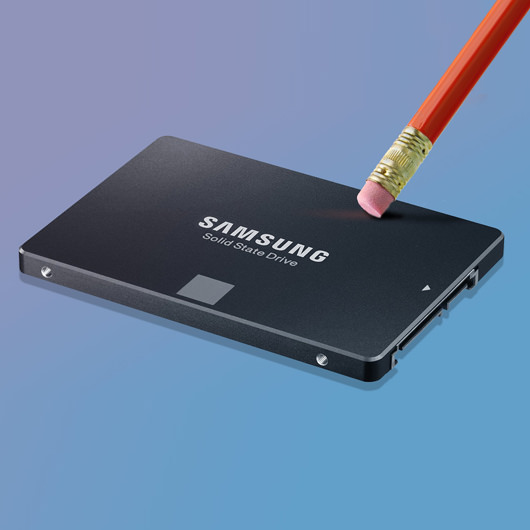Dispose storage media
Do you know that data still resides on your computer and portable storage media, such as thumb drives and memory cards, after you delete the document or files?
Using the analogy that your computer’s storage is a library, deleting a file is akin to removing a book’s index from the library catalogue. The book (file) will still be in the library (computer’s storage), you can still find it if you have the right tools. The same analogy can be applied to other types of electronic storage media. A storage media may contain more personal and confidential information than you thought. Personally identifiable information (PII), financial credentials, and sensitive data can be recovered if they are not completely and securely removed. The easiest way for criminals and fraudsters to obtain such information is to examine disk drives that were not sanitised.
The Myth of Deleting and Reformatting
Deleting all the files or reformatting your storage media is not a secure way to remove data before disposal. Bits and bytes of the data can still be recovered after you have performed these two actions.
| Myths | Facts |
| “Once I delete the unwanted file in my computer and clear my computer’s ‘recycle bin’, the file is gone forever” | Recalling the library analogy, deleting a file is the same as removing a book’s index from the library catalogue. It does not remove the book from the library, you just couldn’t find it if you look into the library catalogue. In the case of a computer’s storage, the file’s data still resides in the storage media, until the memory space that it occupies in the storage media gets overwritten by other files’ data. |
| “I can reformat my computer’s hard disk drive to remove all traces of past data” | When you reformat your computer’s hard disk drive or other portable storage media, it may look as if all data in it has been erased. However, that is far from the truth, your previous data still resides in the storage media and can still be recover.
Reformatting your computer’s hard disk is similar to destroying the library catalogue. However, the books can still be found on the shelves. |
What Should You Do Before Disposing Your Computer and Removable Storage Media
Data stored in your devices (e.g. computer, laptop, and mobile devices) resides in its storage media (e.g. hard disk, storage card, etc.). In this section, we will discuss three actions that you may consider before disposing your computer and removable devices.
| 1 | Encryption Encryption is the process of encoding information using an “encryption algorithm” and “encryption key”, turning it into an unreadable ciphertext. By encrypting your data, others will not be able to retrieve its content unless they gain access to the “encryption key” (like your password) that you use to encrypt the data. You can either encrypt specific files in your storage media or the entire storage media. However, the security of the data is only as strong as its encryption standard and key. It can be recovered given enough time and effort. A list of encryption software can be found on Wikipedia (Comparison of Disk Encryption Software).When choosing an encryption algorithm, the AES128 (AES256 when available) encryption standard. Remember to always use a strong password (encryption key) to encrypt the data. |
| 2 | Secure Data Erasure Secure data erasure uses software-based methods to overwrite every bits of your storage media’s memory space such that all its original data is overwritten to an unrecoverable state. |
| 3 | Physical Destruction You can either shred it, or pulverise it completely. You would require industrial standard tools to destroy your hard disk as it is definitely much tougher to break than you think. |
Dispose your Computer and Removable Storage Media Responsibly
After you have sanitised your computer or removable media, you should dispose your electronic waste (e-waste) responsibly in an environmentally friendly way. Consider recycling it; you can find a list of collectors and traders for recyclables on the National Environmental Agency (NEA)’s website (http://www.nea.gov.sg/energy-waste/3rs/collectors-traders-and-local-recycling-facilities).
DTA (DT Asia) is a major provider of degaussing and disintegrating machines. Our NSA approved Degaussers and Disintegrators for Secure Electronic Data Destruction is welknown in Singapore, Japan and Honkong. The solutions are various for every need of Data destruction:
- Degaussers
- Crushers
- Shredders
- Secure Wipe (Software solution)
Please contact us for more information and quotation.
